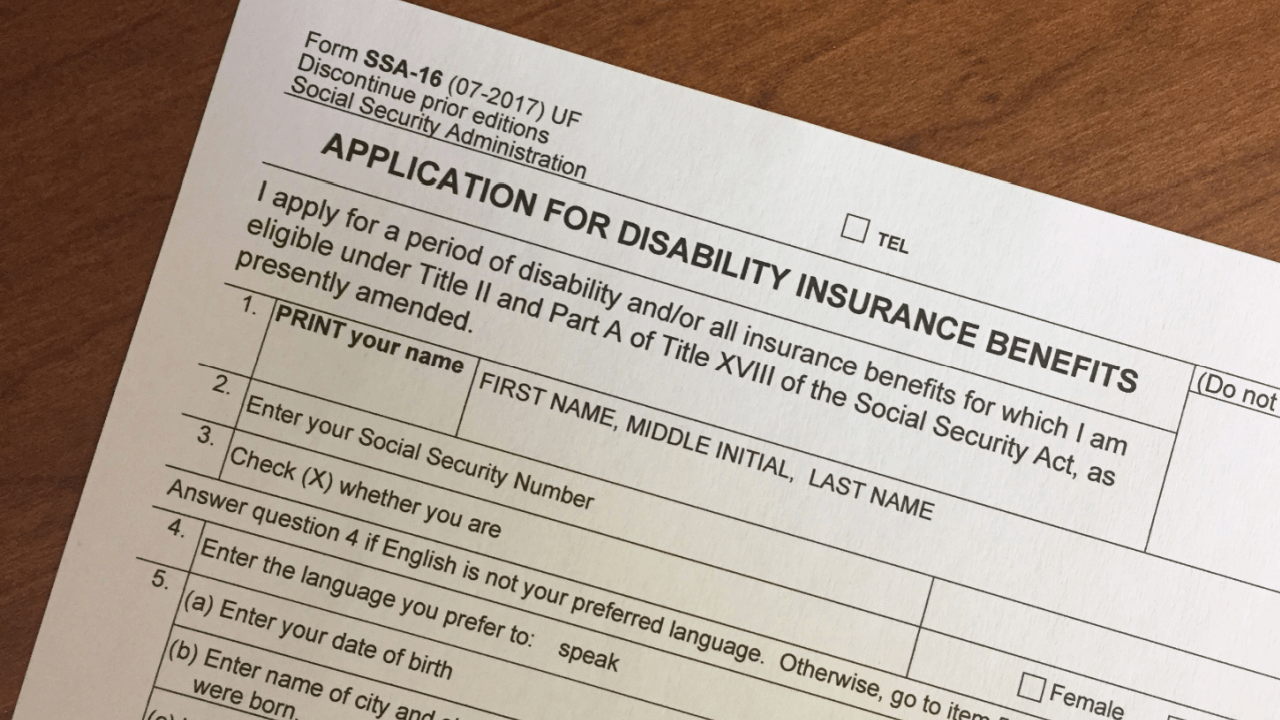
What Is the Most Diagnosed Disability? A Look at the Most Common Conditions on Record
What Is the Most Diagnosed Disability? Understanding SSDI Trends
When researching Social Security Disability Insurance (SSDI), a common question arises: What is the most diagnosed disability?
Understanding which disabilities are most frequently diagnosed—and why they lead to high rates of SSDI claims—can help applicants align their evidence with Social Security Administration (SSA) requirements.
While SSDI claims involve a wide variety of medical conditions, musculoskeletal disorders consistently top the list, followed by mental health and neurological disorders. These conditions are among the most common reasons people receive disability benefits due to their long-term effects on work capacity.
In this article, we’ll explore the most frequently diagnosed disabilities, why they dominate SSDI claims, and how to build a stronger application if you’re affected by one.
Common Disabilities Frequently Diagnosed for SSDI Claims
Musculoskeletal Disorders
Musculoskeletal impairments are the most diagnosed disabilities among SSDI applicants. These include:
- Degenerative disc disease
- Arthritis
- Chronic back pain
- Joint dysfunction
- Severe scoliosis
These conditions affect mobility, lifting ability, and endurance—core requirements for most jobs. They are responsible for a significant percentage of all SSDI approvals.
Mental Health Disorders
Severe mental illnesses are the second most diagnosed disability group, including:
- Major depressive disorder
- Bipolar disorder
- Schizophrenia
- Anxiety disorders
- Post-traumatic stress disorder (PTSD)
Mental health conditions that interfere with memory, focus, emotional stability, and social interactions can severely limit an individual’s ability to work and may affect eligibility for disability benefits, depending on the circumstances.
Neurological Disorders
Neurological impairments are also frequently diagnosed, including:
- Epilepsy
- Multiple sclerosis (MS)
- Parkinson’s disease
- Traumatic brain injuries (TBI)
Neurological issues often cause movement difficulties, cognitive impairments, and other functional limitations recognized by SSA.
Chronic Respiratory Disorders
Severe respiratory conditions like:
- Chronic obstructive pulmonary disease (COPD)
- Pulmonary fibrosis
- Asthma (severe cases)
limit a person’s stamina and ability to perform even sedentary jobs, making them common among disability claims.
Why Musculoskeletal and Mental Health Disabilities Dominate SSDI Claims
Several factors explain why musculoskeletal and mental health conditions lead SSDI claims:
- Workplace Impact: Back injuries and mental illnesses directly affect the ability to maintain attendance, complete tasks, and perform physical labor.
- Chronicity: Many musculoskeletal and mental health disorders are chronic, lasting years or a lifetime without full recovery.
- Documentability: These conditions often have extensive medical records from doctors, therapists, and specialists, providing the necessary evidence SSA requires.
- Age-Related Increases: As the workforce ages, the prevalence of degenerative back and joint conditions rises, increasing SSDI claims based on these diagnoses.
How to Strengthen Your SSDI Application for a Common Disability
Even if you have one of the most diagnosed disabilities, approval isn’t automatic. You must still prove that your condition is severe, long-lasting, and prevents full-time work.
Here’s how to build a stronger claim:
Submit All Medical Evidence
Include imaging studies, lab results, mental health evaluations, therapy notes, and hospitalization records. A diagnosis alone isn’t enough—you need evidence showing functional limitations.
Provide a Residual Functional Capacity (RFC) Form
Ask your doctor or specialist to complete an RFC explaining how your condition limits walking, lifting, focusing, sitting, or completing tasks consistently.
Demonstrate Consistent Treatment
SSA wants to see that you have pursued medical treatment. Missed appointments or gaps in therapy can hurt your credibility.
Describe Vocational Limitations Clearly
Explain how your disability impacts your specific job duties, or prevents you from transitioning to other types of employment.
Work With an Experienced Disability Lawyer
An experienced disability lawyer can help identify potential issues in a claim, assist with gathering documentation, and help ensure the application follows SSA requirements.
What Is the Most Diagnosed Disability? Final Thoughts
So, what is the most diagnosed disability? Musculoskeletal disorders—especially back problems—lead the list, followed by mental health conditions and neurological impairments.
While these are common, it doesn’t mean approval is automatic. SSA evaluates each case based on the severity of limitations, medical documentation, and your ability to sustain full-time employment.
Building a strong, evidence-backed application is important when seeking disability benefits.
Get Legal Help to Strengthen Your SSDI Application
The SSDI process can be confusing and stressful, especially when dealing with a long-term or chronic condition. Legal Brand Marketing helps individuals connect with disability attorneys who can review your situation and explain how claims are typically presented under SSA guidelines.
Contact us to be matched with a disability lawyer who can review your situation and discuss your available options.
Frequently Asked Questions (FAQs)
1. What is the number one disability for SSDI claims?
Musculoskeletal disorders, particularly back and joint problems, are the most common basis for SSDI claims.
2. Do mental health conditions qualify for SSDI?
Yes. Severe mental health disorders like depression, bipolar disorder, and schizophrenia often qualify for benefits when well-documented.
3. Are neurological disorders easy to prove for SSDI?
They can be, especially when supported by clear medical evidence such as MRIs, EEGs, or neurological assessments.
4. Can I qualify with more than one disability?
Absolutely. SSA considers the combined effects of multiple impairments when evaluating disability claims.
5. Should I hire a lawyer if I have a common disability?
Yes. A lawyer ensures your claim meets all SSA standards and maximizes your chance of fast, successful approval.
Key Takeaways
- Musculoskeletal disorders are the most diagnosed disabilities among SSDI claims.
- Severe mental health and neurological conditions also rank high.
- Complete medical documentation and RFC forms are crucial for approval.
- Legal help greatly improves your chances of success, even with common conditions.
- Legal Brand Marketing connects you with trusted disability lawyers ready to guide your case.


